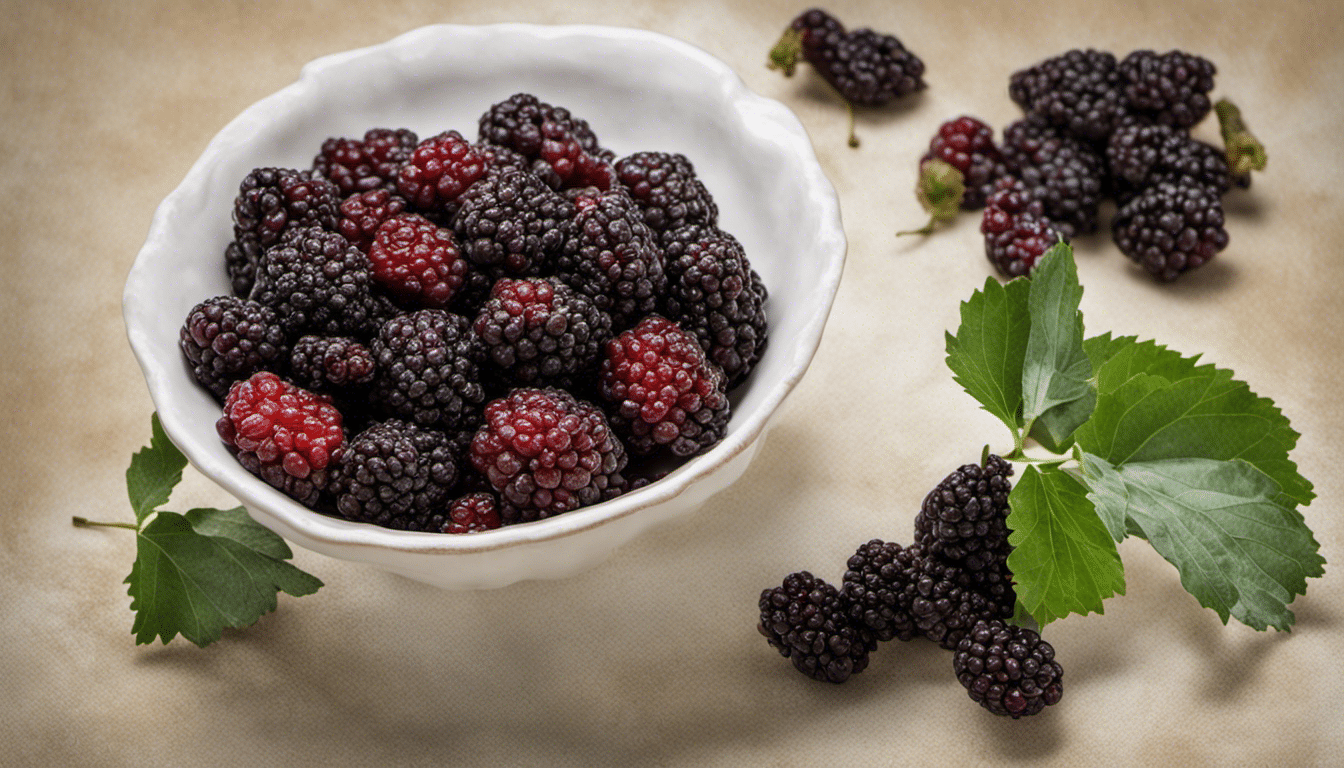All About Mulberries

Mulberries are the fruits of mulberry trees (Morus), available in a variety of species. For example, the Morus rubra (red mulberry) and Morus alba (white mulberry) are among the most common types. But do you know that beyond the sweetness they bring to your table, these small, sweet fruits are filled with immense health benefits and nutritional values?
Understanding the Nutritional Profile of Mulberries
Mulberries are a great addition to your diet, boasting a juicy sweetness combined with a wealth of healthful nutrients. They’re packed with vitamins C and K, iron, potassium, and fiber. The luscious fruits are also high in antioxidants, which protect your body from free radicals. In 100 grams of these small fruits, there’s only 43 calories, making them an excellent selection for those mindful about their caloric intake. For a more detailed breakdown of its nutritional profile, you can visit the USDA’s FoodData Central
Health Benefits of Mulberries
While their sweetness is undeniably appealing, the health benefits that mulberries offer are equally attractive.
Mulberries are known for their high antioxidant content, contributing to lower levels of oxidative stress and inflammation in the body. These antioxidants include the flavonoids rutin, myricetin, and quercetin which are known for their potential cancer-fighting properties. Read more about this on National Library of Medicine’s site.
The fruits are also heart-healthy. They contain resveratrol, a type of natural phenol that studies have linked to heart disease prevention. This, coupled with their fiber content, can help promote healthy cholesterol levels, thereby protecting against heart disease.
If you have a sweet tooth but are cutting on unnecessary sugars, mulberries are a welcome alternative. Their natural sweetness and fiber content can help control blood sugar. A 2017 study published on Pubmed revealed that mulberry leaf extract could help reduce insulin resistance and lower sugar levels after meals.
Adding mulberries to your diet can also help improve digestive health. The fruits are an excellent source of dietary fiber, which promotes healthy digestion and aids in preventing constipation.
Furthermore, mulberries contain iron and vitamin C – essential nutrients for a robust immune system and improved skin health. Vitamin C aids in collagen production, a protein that maintains the skin’s elasticity and prevents aging. On the other hand, iron discourages anemia, a condition linked to fatigue, weakness, and lowered immunity.
With this wealth of health benefits, it’s clear why mulberries have been used in traditional medicine for years and are hailed as a superfruit in contemporary wellness circles.
Enjoying Mulberries in Your Diet
Not sure how to include mulberries in your diet? The good news is, they are incredibly versatile. Fresh, ripe mulberries have a sweet flavor that works well in a variety of dishes. They’re perfect in smoothies, salads, muffins, pies, and even as a topping for yogurt or cereal. If you can’t find fresh mulberries, dried or frozen varieties are equally nutritious and can be used in the same way as the fresh ones. For some delicious mulberry recipes, you can check out Food and Wine’s compilation.
There’s no denying that this humble fruit packs a punch when it comes to taste and nutritional value. So next time you come across mulberries in the grocery store, don’t hesitate to add them to your basket!



